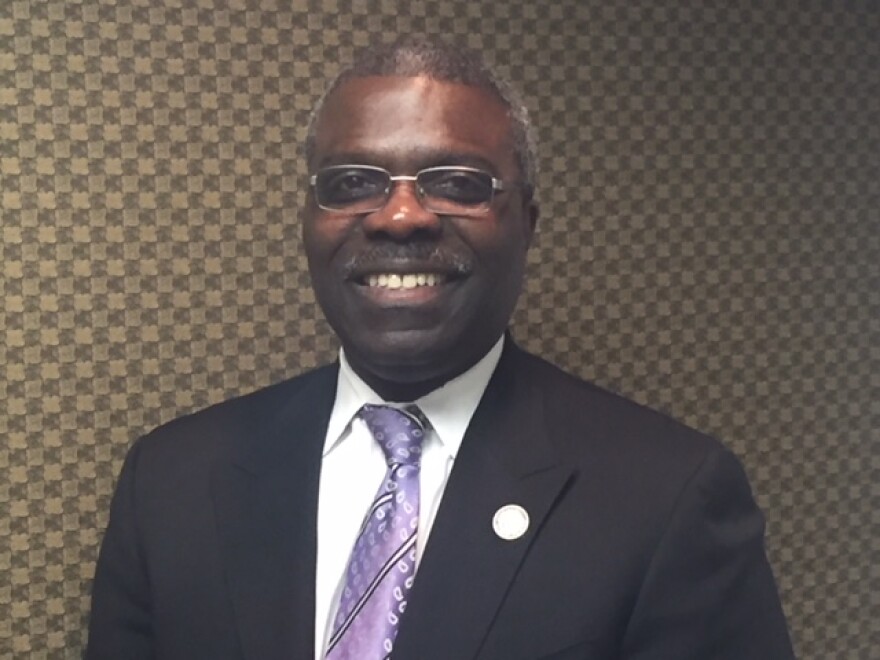Johnson C. Smith University has a new president. Clarence Armbrister joined the university last month. Although he’s spent several years in university administration, he didn’t exactly come up the usual academia ranks. Armbrister is a lawyer with a finance background. He’s worked as treasurer for the city of Philadelphia, as chief of staff for one of the city’s mayor, and as managing director for the city’s school. Armbrister is taking over the historically black university at a challenging time.
Enrollment has dropped and, in December, the school’s accrediting agency put the university on probation, citing financial concerns.
You've got experience in a lot of different areas. What skills are you bringing to JCSU that the school needs right now?
I'd like to think I bring analytical skills, problem-solving skills, and the experience of having worked through challenges at institutions like this before.
What do you mean by that?
I'll go back to the most recent one, the school that I just left, which was a boarding school in Philadelphia, called Girard College, a historically significant school in Philadelphia. The board of the school saw that the financial ability of the school to be around in perpetuity might be in question and he asked me to come and try to figure out a way to try to solve that problem.
Why was JCSU put on probation by its accrediting agency?
We are accredited by SACs which is the accrediting agency for schools here in the southern region of the United States. And what SACs determined is that we did not meet two of their standards related to financial stability and financial control. Essentially what they said in further conversations is that they're looking to see that we can prove ourselves financially for at least another year. Last year there were positive operating results, slightly positive operating results. We're hoping that we can get to another positive operating result in the current fiscal year and demonstrate that we're back on financial footing going forward.
How does JCSU stand out in a somewhat crowded field of HBCUs in North Carolina?
Among those things that I'm looking to do is to look at how we can meet our obligation, which is to enhance student outcomes….We have to make sure that we are adequately resourced, so we have to make sure that other philanthropic social investors, if you will, who are interested in making a difference in higher education see Johnson C. Smith as a worthy investment. The way to do that is to make sure that we recruit high quality students. We maintain our commitment to access to students, make a difference in the lives of those students in ways that many other institutions have not found a way to do, that we retain those students once we get them through the door, and that we ultimately provide them with a rigorous education that will make them citizens who can go out and be very positive contributors to both the local, regional, and national economy. So we're looking at a kind of holistic approach of trying to make sure that we have all of those things in place to continue to make Johnson C. Smith an attractive option for students.
What role do you see JCSU playing in the City of Charlotte and the community?
I think JCSU is going to be a significant player not only in Charlotte, but in the region. I love Charlotte, but one of the things that I've observed as I've gone around Charlotte and talked to folks is the fact that Charlotte was 50th among the 50th largest cities in the country in terms of upward mobility. When I look at a place like Johnson C. Smith University where it sits in Charlotte, there can't be any other institutions better positioned than us to really produce those high-quality graduates and students who can go out and help to start closing that gap.






